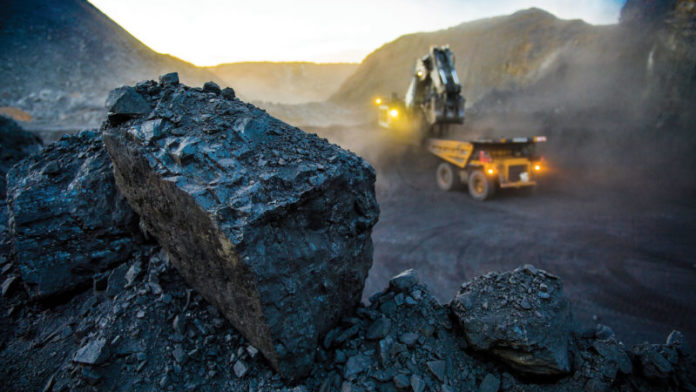
WESCOAL said today it would embark on a retrenchment programme involving staff throughout the organisation following lower off-take from Eskom amid Covid-19 lockdowns earlier this year, an economic pressure exacerbated by a decline in the price of coal.
The company is also negotiating the refinance of its balance sheet. It said it had experienced “negative cash flow” during the first six months of its 2021 financial year. Shares in Wescoal gained 8% on the Johannesburg Stock Exchange, but at a market capitalisation of R273m, the company is worth half its value since January.
“Reduced sales driven by lower demand from key customers, a lower selling price and above inflation cost increases, coupled with the negative impact of the Covid-19 pandemic have required a reassessment of the business model and cost saving initiatives,” said Wescoal in a trading statement today.
“In an effort to improve the financial performance, efficiency and sustainability of the business, management and the board have decided to implement group-wide retrenchments and commenced a section 189 process,” it said. The section reference is to South Africa’s Labour Relations Act which allows for a period of consultation.
“The process is expected to be completed by mid-December 2020 with staff reductions across all operations,” said Wescoal.
Headline share earnings will recover year-on-year to between 3.0 and 3.5 South African cents a share compared to an 11.9 c/share loss in the first half of the 2020 financial year. Despite this, however, Wescoal appears to have balance sheet pressure.
It is building its R250m to R290m Moabsvelden project, a satellite coal resource of the firm’s flagship Vanggatfontein mine near Ogies in Mpumalanga province. Wescoal described the project as a “large” capital endeavour for the company.
At the same time, off-take from Eskom had not yet fully revived following the Covid-19 lockdown which forced the South African power utility to reduce purchases to all but the most essential. Some exports were also allowed during the March/April hard lockdown.
Total run of mine and saleable product stockpiles increased more than 20% since the beginning of the 2021 financial year. Offtake levels were expected to normalise in the third quarter but there remained “… significant downside risk to sales volumes”, it said. It was hoping to supply the domestic market in order to diversify revenue.
Wescoal continued to operate within its debt covenants but restructuring of the balance sheet was required, principally of its debt repayment schedule.
“Wescoal is engaging its lenders in respect of a potential debt restructure in order to manage the short to medium term debt repayment commitments in light of the negative cash flow impacts on the business related to reduced coal offtake levels,” it said.
“The timing of the conclusion of these discussions and the total amount of repayments to be rescheduled during FY 2021 cannot be confirmed at this stage.”











